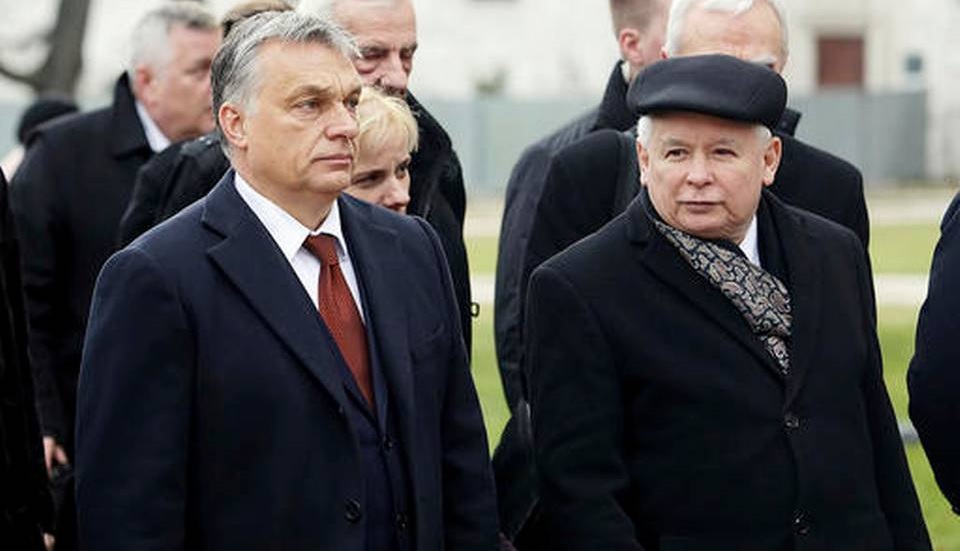Hungary – On 5 March, the Nézőpont Institute (which is close to the government) published the results of an opinion poll on Hungarian voters’ positions on the issue of the Russian-Ukrainian conflict. The survey was conducted by telephone between 28 February and 2 March on a panel of 1,000 active voters, taking into account criteria related to age, region, type of municipality inhabited and level of education. For this poll, Nézőpont shows a maximum margin of error of 3.16% for a confidence level of 95%.
According to this study, 61% of Hungarian voters think that Orbán is the best at defending Hungarian interests, while only 10% of voters think that the united opposition candidate Péter Márki-Zay is better suited for this role.
The opposition candidate does not manage to convince a majority of voters in his own camp: only 43% of voters who want him to be Prime Minister think that he would be the most capable of defending Hungarian interests. This figure even drops to 25% in the larger panel of opposition voters – a panel in which 18% of respondents believe that Viktor Orbán is the most able to defend Hungarian interests.
The question of arms delivery to Ukraine has stirred the Hungarian public debate since the beginning of the Russian-Ukrainian conflict, the Prime Minister being opposed to it while Péter Márki-Zay has made vague statements on the matter, to say the least. According to this poll, it appears that 80% of Hungarian voters are opposed to arms deliveries to Ukraine, with 15% of voters being in favour of it. 92% of Fidesz voters and 62% of opposition voters are against any delivery of arms to Ukraine. On this point, the split between Fidesz voters and those of the opposition is clear: 5% of Fidesz voters are in favour of delivering weapons to Ukraine, while 27% of opposition voters support this idea.
In addition, the Publicus polling institute (close to left-wing circles) has just published a study commissioned by the socialist MEP István Újhelyi, who is fiercely opposed to Orbán’s government policy of openness to the East, while he himself has had ties with China in the past. This survey took place between 3 February and 14 February, that is to say, before the Russian military intervention in Ukraine, on a panel of 2006 respondents.
According to this poll, 67% of respondents “tend to agree with the statement that Viktor Orbán and his government are undermining European unity by serving the interests of Russian President Putin, thus endangering the security of both Europe and Hungary.” However: only 10% of Fidesz voters agree with this statement, while 90% of opposition voters do. 53% of respondents believe that the government’s current foreign policy primarily serves Russia’s interests (a year ago, only a quarter of them responded positively to this statement).
This is followed by a series of commonplace tropes: 84% of respondents attach great importance, among EU values, to peace and cooperation between Member States. 82% of respondents agree with the statement that Hungary belongs to the West in terms of its values, and that we must move closer to the West in the future. 88% of respondents tend to agree with the statement that Hungary’s NATO membership means security for the country, hence the crucial importance of cooperation within NATO. Finally, 71% of respondents rather disagree with the fact that it is in Hungary’s interest to get closer to Russia and to distance itself from the EU and the United States.
What is worthy of note?
Pro-government media present the results of the Nézőpont Institute poll as proof of the success of government action. The „independent” media push forward the results of the Publicus poll as a disavowal of government policy. This confrontation through politics and media is natural, but it misses the point.
Although they may seem contradictory at first glance, the results of these two polls are in fact consistent, and provide information on the “Hungarian character” in the international game, thus removing a series of misunderstandings.
The policy of the Hungarian government since 2010 has never been to question Hungary’s membership of the Euro-Atlantic bloc.
Unsurprisingly, Hungary also rallied behind the concert of sanctions and condemnations in reaction to Russia’s military intervention in Ukraine – an attitude widely supported by the population. To think for a single moment that Hungary has been trying since 2010 to separate from this political and military bloc in favour of joining a bloc ruled by Eastern partners is absurd and blatant dishonesty. Regarding this point, journalist András Hont’s analysis, both a critic of the government and of the opposition, is in our view the most valid.
It is quite possible to condemn the Russian military operation and be on the whole against an alignment with Russia, and, at the same time, to note that the government’s energy policy since 2012 (still) allows Hungarians not to experience violent fluctuations in energy prices. France – although its Economy minister advocated, before backtracking on his remarks, a “total economic war against Russia” – continues, for example, to pay its gas bills to Russia, knowing full well that an abrupt exit from the contracts signed with its Russian suppliers would be a true disaster for French households.
Viktor Orbán’s project was never to launch Hungary into on an alternative to its membership of the Euro-Atlantic bloc. His project was just to point out the weakness of this block in order to obtain certain concessions. This does not mean that Hungarians are not attached to this block, but simply that many of them see its weaknesses. These weaknesses even tend to turn masochistic when one considers the fallout from sanctions against Russia on European economies.
As a whole, Hungarians are no longer a “geopolitical people”. This partly explains why among the countries of Central and Eastern Europe, Hungary is the least virulent in its condemnation of Russia. Since 1920, Hungarians no longer believe in fine speeches about the “right of peoples to self-determination”. They have a disillusioned vision of international relations, and are perfectly aware that their country could at any time be victim to the whim of great powers.




